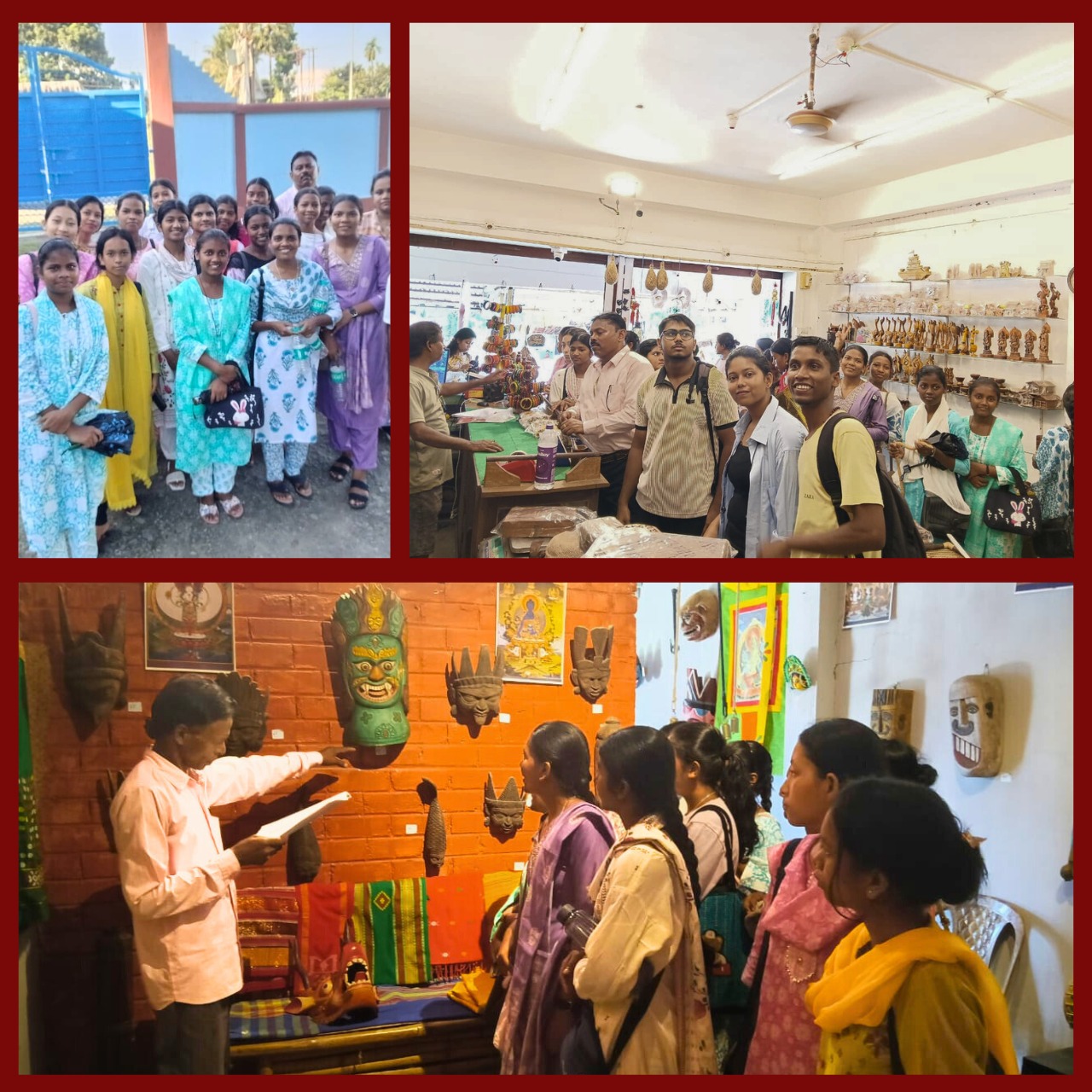
Dialogue, Field Visits, and Capturing Stories
India’s tea gardens have long been an integral part of the country’s cultural and economic landscape. But for the workers and families who spend their lives within these estates, the tea industry represents livelihood, heritage, and the everyday rhythm of survival and hope.
Bridging Classrooms and Plantations
To deepen these insights, students of the Skills Development Program embarked on a field trip to Lataguri and the Gorumara Forest region in Jalpaiguri district, an area synonymous with tea, tourism, and the rhythms of rural livelihood. The visit brought together 31 students, three office staff, and two external trainers, led by Mr. Manas Bhattacharya, Head Trainer of the Skills Development Project.

The group explored the Tribal Museum, featuring traditional handmade musical instruments, full-face masks, and tribal attire, vivid reminders of the Dooars’ cultural depth. At the Adivasi Dance Centre, established within the forest by the Government, Mr. Bhattacharya offered insightful briefings on the origins and significance of the performances. Students also visited the Animal Rescue Centre and later held an engaging discussion with Mr. Raja Bhoumik, owner of Panchabanjon Resort, on the operations and challenges of the hospitality sector.
Further visits to a local handicraft shop and the Teesta River Bridge area gave students a glimpse into local entrepreneurship and the natural beauty that defines the region.
The purpose of the visit was threefold: to expose students to career opportunities in tourism and hospitality, to promote awareness of sustainable and eco-friendly tourism, and to build teamwork, environmental sensitivity, and leadership through experiential learning. The trip provided practical knowledge of the industry, insights into sustainable practices, and valuable interactions with professionals and artisans who shape the region’s tourism economy.
Understanding Labour, Heritage, and Sustainability
In continuation of these efforts, students also visited the Shikarpur Tea Estate, a plantation known for its historical role in labour movements and its ongoing relevance to debates on sustainability. Established during the colonial period, Shikarpur was among the estates where early worker mobilisations for fair wages and better housing began. Many of today’s workers are descendants of those who migrated from central India to work on the plantations, their lives reflecting both hardship and resilience.
The visit allowed students to observe plucking practices, understand daily plantation routines, and engage in direct dialogue with workers. Concepts discussed in classrooms, labour rights, economic security, and sustainable practices found tangible meaning amidst the tea rows. The estate visit thus underscored how dignity and livelihood remain intertwined with the future of the tea sector.

This perspective was at the heart of a recent guest lecture by Mr. Rameshwar Kujur, former Deputy Director of Tea Development, Tea Board of India, held in Jalpaiguri. Drawing on his extensive experience, he spoke about the future of tea garden labour, the role of youth in shaping that future, and the importance of health and well-being in community life. He reminded students that the industry is more than production and trade; it is a living ecosystem of people, practices, and traditions that sustain entire communities.
A Continuing Journey
The dialogues, field visits, training program, and documentation efforts across Jalpaiguri together point to a larger understanding: that education and engagement must extend beyond classrooms. They find meaning in conversation with practitioners, within the lived spaces of plantations, and through listening to those who sustain the industry. As the tea sector and tourism in the Dooars evolve, it is these interactions, grounded, empathetic, and forward-looking, that will shape a more sustainable and inclusive future.
Be a part of transforming lives through education and skills training in rural India.
🌐 Support the cause, Donate now: https://payments.cashfree.com/forms/pdf-donation

